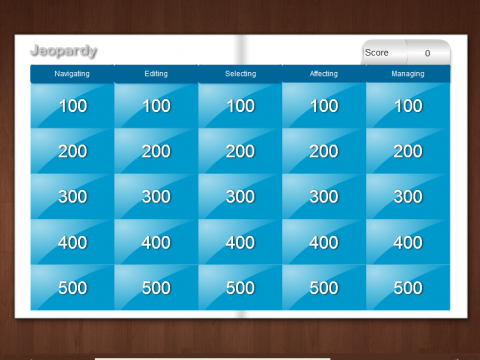Legal Know-How for Practicing Law
Welcome to LexTechne
Practical Know-How for Lawyers, Paralegals and Legal Assistants
What are LexTechnai?
LexTechne and LexTechnai are neologisms combining the word Lex, the Latin for Law, with Techne, and its plural, Technai, the Greek for skill or craftsmanship, referring to the different know-how skills necessary to practice law.
Legal Know-how Skills
The Skills Needed by Law Office Personnel so They Can Process, Produce, Manage and Leverage Knowledge
The purpose of this website is to provide the skills needed by law office personnel to find, evaluate, process, organize and manage data and information in the production of knowledge and legal work product. This website will also provide said personnel with the training necessary to acquire and to then hone these skills, along with a means for assessing their skill level. Additionally, this website will provide the skills needed by legal knowledge managers to develop procedures and methodologies to manage the workflow in a more efficient manner, so as to maximize efficiency, improve productivity and increase profitability.
The LexTechnai, or Legal Know-How Skills, are Found in the Combination of Three Primary Skill-sets:
The modern law office is a knowledge enterprise, where information is researched, collected, organized and stored, so that it can be internalized, processed and assimilated, so that knowledge, in the form of work product can be produced, utilized, managed and leveraged. These tasks will be performed on either a computer or in someone’s head. Therefore, the essential skills for personnel working in a law office to perform their jobs are categorized as information, computer and thinking skills, and these skills are needed by each employee in accordance with their individual job description. Traditionally, law firm personnel consisted of lawyers and legal secretaries. In the late 1960’s, paralegals and legal assistants were added to the mix. However, in the 21st century, I maintain that it may be better to refer to law firm personnel as knowledge assets and categorize them as knowledge workers, knowledge technologists, knowledge managers and knowledge professionals. Traditionally, law firm personnel consisted of lawyers and legal secretaries. In the late 1960’s, paralegals and legal assistants were added to the mix. However, in the 21st century, I maintain that it may be better to refer to law firm personnel as knowledge assets and categorize them as knowledge workers, knowledge technologists, knowledge managers and knowledge professionals. The modern law office is a knowledge enterprise, where information is researched, collected, organized and stored, so that it can be internalized, processed and assimilated, so that knowledge, in the form of work product can be produced, utilized, managed and leveraged. These tasks will be performed on either a computer or in someone’s head. Therefore, the essential skills for personnel working in a law office to perform their jobs are categorized as information, computer and thinking skills, and these skills are needed by each employee in accordance with their individual job description. The modern law office is a knowledge enterprise, where information is researched, collected, organized and stored, so that it can be internalized, processed and assimilated, so that knowledge, in the form of work product can be produced, utilized, managed and leveraged. These tasks will be performed on either a computer or in someone’s head. Therefore, the essential skills for personnel working in a law office to perform their jobs are categorized as information, computer and thinking skills, and these skills are needed by each employee in accordance with their individual job description. The modern law office is a knowledge enterprise, where information is researched, collected, organized and stored, so that it can be internalized, processed and assimilated, so that knowledge, in the form of work product can be produced, utilized, managed and leveraged. These tasks will be performed on either a computer or in someone’s head. Therefore, the essential skills for personnel working in a law office to perform their jobs are categorized as information, computer and thinking skills, and these skills are needed by each employee in accordance with their individual job description. The modern law office is a knowledge enterprise, where information is researched, collected, organized and stored, so that it can be internalized, processed and assimilated, so that knowledge, in the form of work product can be produced, utilized, managed and leveraged. These tasks will be performed on either a computer or in someone’s head. Therefore, the essential skills for personnel working in a law office to perform their jobs are categorized as information, computer and thinking skills, and these skills are needed by each employee in accordance with their individual job description. Progress, far from consisting in change, depends on retentiveness. When change is absolute there remains no being to improve and no direction is set for possible improvement: and when experience is not retained, as among savages, infancy is perpetual. Those who cannot remember the past are condemned to repeat it. In the first stage of life the mind is frivolous and easily distracted, it misses progress by failing in consecutiveness and persistence. This is the condition of children and barbarians, in which instinct has learned nothing from experience. George Santayana, The Life of Reason, Volume 1, 1905.Modern Law Office
Personnel Using Computers to Produce and Manage:
Law Office Personnel
Lawyers, Paralegals and Legal Secretaries can be More Accurately Referred to as:
Know-How Skills
Mastering Any Know-how Skill Requires Mastery of the Eight Ts.
Acquiring Know-How Skills
Mastering Any Know-how Skill Requires Mastery of the Eight Ts.
Assessing Skill Levels
Skill Levels
Producing Work Product
Mastering Any Know-how Skill Requires Mastery of the Eight Ts.
Managing Information and Personnel
Skill Levels
Hello world!
Let me introduce myself. My name is Joseph L. Vallette. Among other roles, I am an attorney, a workflow consultant and an adjunct computer instructor. As an attorney, I am a wordsmith by profession. I must read and comprehend the words of others, as well […]



